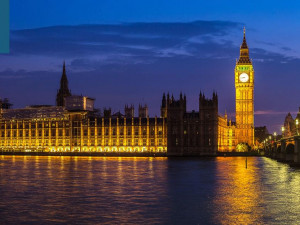
Is the recession due to Brexit?
Morning mid-market rates – The majors
23rd November: Highlights
- UK faces a recession while others escape
- A threatened rail strike may drive economy lower
- Euro in the doldrums as traders waits for ECB to act
GBP – Can the Government improve matters or just ride it out?
The first tell-tale sign of a contraction in the economy is expected to be a slowdown in employment, which will turn negative in 2023 and culminate in between seven hundred and fifty thousand and a million jobs lost.
Employment continues to be one of the major litmus tests of growing weakness in the economy.
The OECD believes that one issue that marks the UK from the rest of the G20 is the effect of Brexit on both the supply of cheap labour and supply chains.
Agriculture and hospitality are the worst hit, with labour shortages pushing wages significantly higher.
As interest rates continue to rise as the Bank of England struggles to bring inflation under control, Andrew Bailey faces a significant split in the Monetary Policy Committee as the doves like Catherine Mann advance their view that inflation is part of a global problem. Mann sees jumbo rate hikes as eventually doing more damage to the economy and will need to be reversed eventually.
While she has still voted to hike rates at the past three meetings, she has been more moderate in promoting continued gradual increases. The Bank of England risks being caught in the rush to hike rates as rapidly as possible and by greater increments, which has been started by the Federal Reserve.
Its Chairman Jerome Powell is particularly hawkish since he feels that the Central Bank was late to the Party by only beginning to hike rates in the spring where the Bank of England began, albeit in smaller increments, before last Christmas.
The Government urgently needs to agree on the remaining issues with Brexit to avoid it still being a significant obstacle as the country begins to emerge from recession. It is hard to imagine that it will still be an issue over the entire term of the current Parliament.
The financial markets are gathering themselves for the Central bank meetings that will take place over the next few weeks. The Fed, ECB, and Bank of England are expected to hike rates, but the level of those hikes and the content of the press conferences accompanying them will add to market volatility.
The pound remained in the narrow range recently, rinsing marginally to a high of 1.1910 and closing at 1.1876. Until the 1,20 level is conclusively broken, the pound will remain in the doldrums while support is around 1.1780
Recommend our services and earn up to £75 per successful referral
USD – December meeting could be a watershed
Yesterday, San Francisco Fed President Mary Daly spoke of her belief that the Central Bank has plenty of options regarding the obvious need for tighter monetary policy.
Daly, who sees herself as one of the more hawkish members of the FOMC, believes that the Fed Funds rate could eventually reach 5% if inflation doesn’t begin to moderate faster.
While that is not her core view, she can see a few scenarios that demand more significant action.
Other members have expressed that, given the most recent inflation data, a fifty-point hike in December may suffice.
While there has indeed been some cooling off in inflation recently, Daly still believes that it is too early to say that the tide has turned.
There is a further threat of a national rail strike, potentially crippling the country, as talks have broken down again between the rail unions and their employers.
At an estimated cost of two billion dollars a day, a strike could be the catalyst that drives the economy into recession.
Industrial action could begin as soon as a week from Monday, with major differences existing over pay and conditions. The primary issue still facing train crews is their punishing work schedule which has barely changed in fifty years.
While the commuter network will be barely affected, the volume of goods transported by rail means that there will be severe disruption to supply chains that have just returned to normal following the Pandemic.
Several periodicals have had articles recently that mention a power struggle emerging at the Federal Reserve.
On the one hand is the ambitious deputy head, Lael Brainard, supported by Treasury Secretary Janet Yellen, who sees climate change as a major issue.
Brainard will likely replace Powell at the end of his term, but should the Republicans be in control of the White House by then, a more Wall Street-friendly candidate may emerge.
The dollar index is rebuilding its base for another leg higher as the market takes a breather. It reached 107.81 yesterday before retreating to its most recent level of support at 107.20.
EUR – Holzmann sees no sign of price pressures easing
He gave one of his most hawkish speeches yesterday, as he spoke of no sign of a lessening of price pressures. He went on to say that a seventy-five-basis point hike would underline the seriousness of the Central Bank’s attitude towards inflation.
In keeping with most of his colleagues, Holzmann is still blinkered to the situation in the Eurozone. From an Austrian or German perspective, inflation needs to be dealt with in the toughest possible terms, no matter the effect on the economy.
While that policy is both considered necessary and acceptable in the Northern European states of the Frugal Five, tighter monetary policy and significantly higher interest rates will choke off any hope they have of avoiding an equally damaging recession.
Christine Lagarde has the unenviable task of finding the middle ground. Still, even a mild reduction in inflation will lead to cries from Spain, Portugal, and Italy for the Central bank to ease off its squeeze on monetary policy that is causing them significant discomfort.
Holzmann sees no sign of a fall in core inflation but does concede that there has been a flattening out of growth and signs of a mild recession.
He believes that any mild economic contraction can be easily repaired, a contention that is not shared by many.
Headline inflation is expected to fall by the middle of next year, but while the war in Ukraine continues, it is unlikely to reach the ECB’s 2% target.
The Euro is stuck in a 1-02/1-04 range, as commercial purchases are offset by the market’s predilection with selling into any significant rally.
Yesterday, it rose to a high of 1.0308 and closed at 1.0300.
Alan Hill
Alan has been involved in the FX market for more than 25 years and brings a wealth of experience to his content. His knowledge has been gained while trading through some of the most volatile periods of recent history. His commentary relies on an understanding of past events and how they will affect future market performance.



